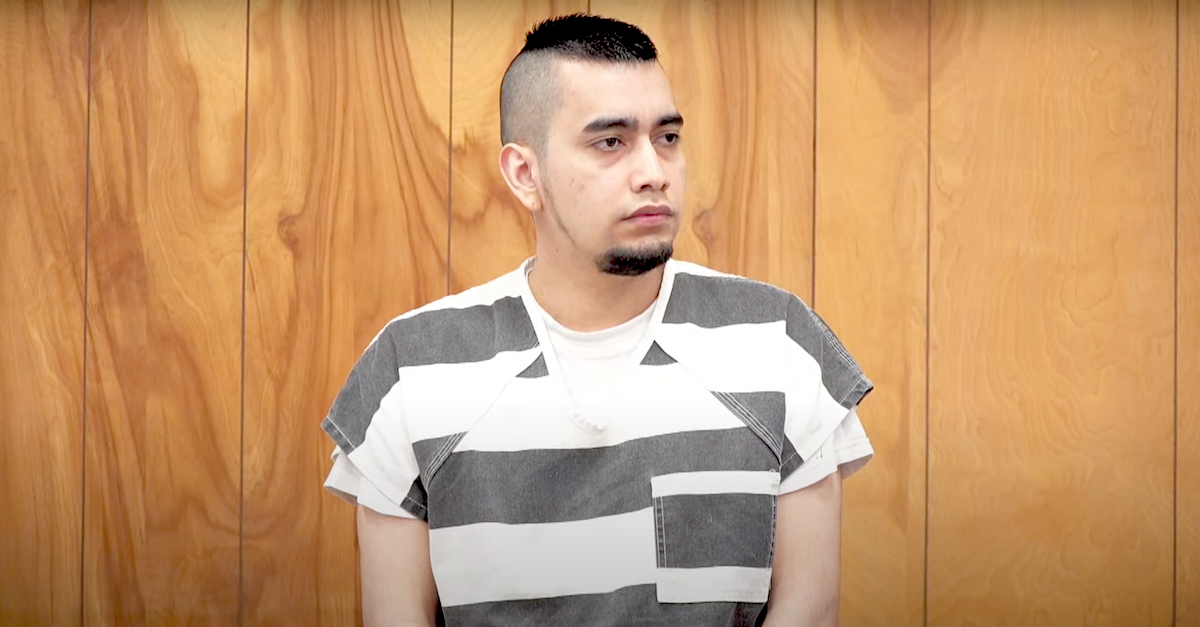
Cristhian Bahena Rivera stands to face a judge at the commencement of a court proceeding on July 27, 2021.
A hearing on Tuesday to determine whether convicted murderer Cristhian Bahena Rivera deserves a new trial in the 2018 killing of Iowa college student Mollie Tibbetts included testimony from law enforcement agents who were in some instances loathe to the fact that the defense was calling their assessments into question.
Bahena Rivera’s attorneys, Chad Frese and Jennifer Frese, recently filed motions for a new trial and to arrest a judgment of conviction against the defendant. Bahena Rivera has yet to be sentenced because his defense team says new tips provided to law enforcement toward the conclusion of his trial warrant a reexamination of the case.
Bahena Rivera claimed at trial that he lied to the authorities when he admitted he killed Tibbetts and dumped her body in a corn field. Rather, he testified that two unknown men appeared at his house early one evening and ordered him to drive until they encountered Tibbetts jogging. One of the two men exited his car and presumably killed Tibbetts; that man then returned to his vehicle and forced him to drive to pick up the body, Bahena Rivera testified. The men them told him where to dump the body and left him to deal with the mess, he said. Bahena Rivera said he went along with this alleged scheme because the two unknown men threatened to kill his daughter and his daughter’s mother if he told the police they they were involved.
Prosecutors have rubbished the shifting defense theory and have steadfastly said that Bahena Rivera is the true and only killer.
Tuesday’s hearing was an attempt to present the defense version of matters for the record.
The first defense witness was Poweshiek County Sheriff’s Deputy Joseph Meyer. He testified that Scott Carter, a local sex offender, on Monday, July 26th — the day before the hearing — called the sheriff’s department at 4:00 p.m. to complain that he was being allegedly harassed by relatives of Xavior Harrelson, a missing boy from the area.
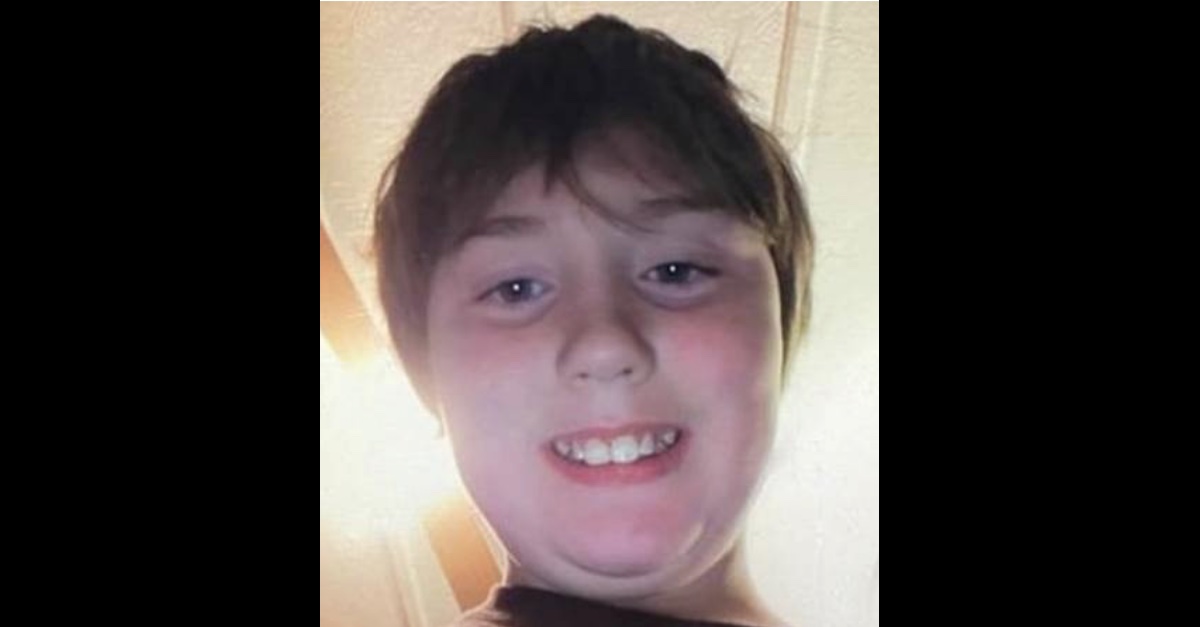
Xavior Harrelson is shown in an image released by the Iowa Department of Public Safety.
The Bahena Rivera defense has tried to tie the Harrelson disappearance into the Tibbetts case by insinuating that a local group of individuals — described invariably as sex traffickers, drug dealers, murderers, and other criminal types — could have been involved in both.
Prosecutors called the details “third-hand information.”
Next to testify for the defense was Arne Maki, 46, an inmate with the Iowa Department of Corrections named several weeks ago in court papers. Maki said he served 21 days in a county jail with another inmate named Gavin Jones. According to Maki, Jones admitted to stabbing Tibbetts to death with an associate named Dalton Hansen as part of a “sex trafficking case gone wrong.”
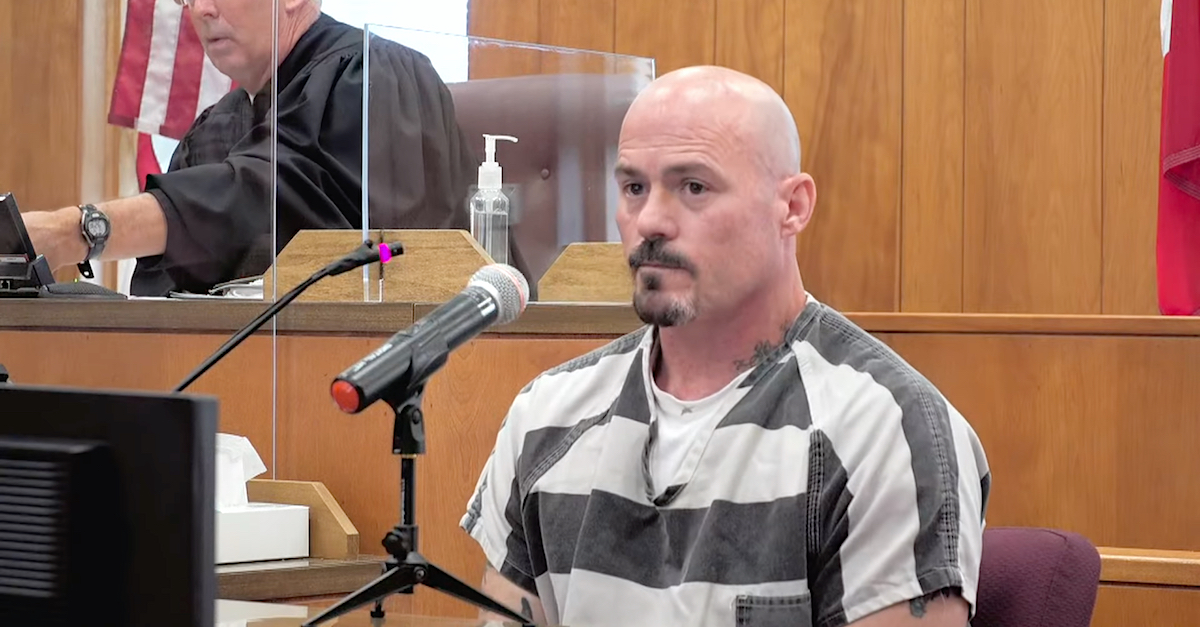
Arne Maki.
Maki said he didn’t believe Jones when he first claims to have heard the admission.
“Why would someone tell me something so heinous like that?” Maki wondered from the witness stand. “I just thought he was trying to be tough.”
“We set him up,” Maki testified that Jones told him with reference to defendant Cristhian Bahena Rivera, the man convicted of killing Tibbetts.
Maki testified that he “forgot the name” of a person Jones allegedly described as a “big guy dressed up nice and clean” who drove a “new car” to an Iowa “trap house” where women and girls were taken to be abused and raped.
Maki told the court that he heard behind jailhouse walls that the sex trafficker who allegedly played a role in Tibbetts’ disappearance had a wife and two daughters and that the Tama, Iowa Police Department was in on it.
According to Maki, Jones told him that there was some sort of a shootout with police and that he saw Mollie Tibbetts bound to a chair and gagged.
Police were looking for Tibbetts, Maki said, and nearly found her — again according to the account allegedly originating from Jones.
“He had to get rid of her,” so he stabbed her to death, Maki said of the sex trafficker who according to this theory was involved with Tibbetts’ death.
Maki provided some detail about the alleged end of Tibbetts’ life, including that she was kept in a basement.
When asked why he did not share this story until the end of Bahena Rivera’s jury trial, Maki said he simply didn’t believe Jones until he saw television coverage of the defendant testifying that he didn’t kill Tibbetts but rather was set up by two men.
“My conscience told me I should say something, even if it’s not true,” Maki said.
Maki said he’s not getting his sentence reduced — his release date is December — and that he’s not being offered promises of a shorter parole, money, or leniency. And Maki said it would “probably not” be good for him if word got out behind prison walls that he testified in open court.
Prosecutors suggested that Jones was likely not involved.
Jones, who is now 21, was just 17 when Tibbetts died. They pointed out that Jones was in custody from Sept. 2017 to Dec. 2017; that he was in a rehab facility from Dec. 2017 to July 2018; and that he was in an assisted living facility under court supervision after rehab. Tibbetts disappeared and is believed to have been killed on July 18, 2018. Maki said he was not aware of those details.
Before he left the witness stand, Maki said his “thoughts and prayers” were with the Tibbetts family. Prosecutors tried to object but Maki finished the statement before the judge could shut him down.
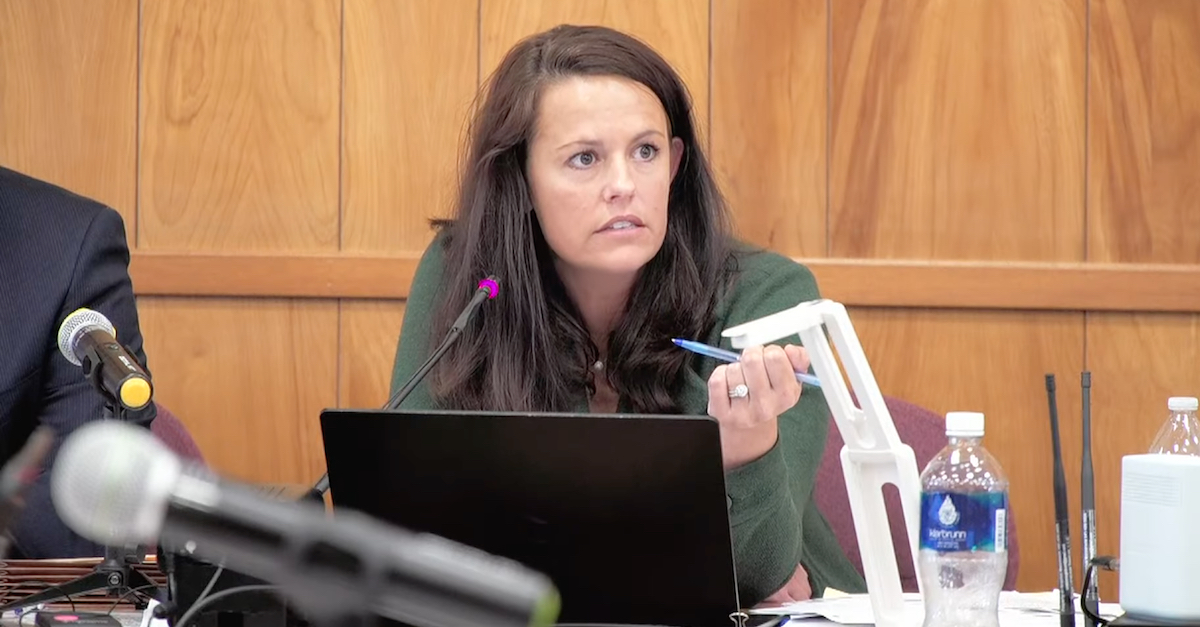
Defense attorney Jennifer Frese.
Defense attorney Jennifer Frese said affidavits of Lindsey Voss and several others were submitted under seal.
Voss, described as Jones’ onetime girlfriend, claimed independently from Maki that Jones also claimed to her that he had participated in the killing of Tibbetts.
Considerable hand-wringing occurred when Assistant Attorney General Scott Brown, the lead prosecutor on the case, said he did not have access to some of the documents the defense filed the day prior to the hearing. Jennifer Frese snapped back at one point that it was not her fault if the Clerk of Court’s office had not properly coded her filings made under seal in an electronic database such that Brown could read them.
Frese then noted that Judge Joel D. Yates, who has overseen the Tibbetts case, had contact with Jones — but that she was not asking the judge to recuse himself. Yates said he was from a “small hamlet” where everyone runs into everyone else at some point. The father of Gavin Jones was a baseball coach to the judge’s son. Gavin Jones was present at several of the judge’s son’s games, but the judge said he never recalled speaking with Gavin Jones and does not recall seeing him in the last six years.
Trent Vileta, a special agent with the Major Crimes Unit of the Iowa Division of Criminal Investigation, was called next by the defense.
Vileta seemed visibly annoyed at the defense’s current theory of the case.
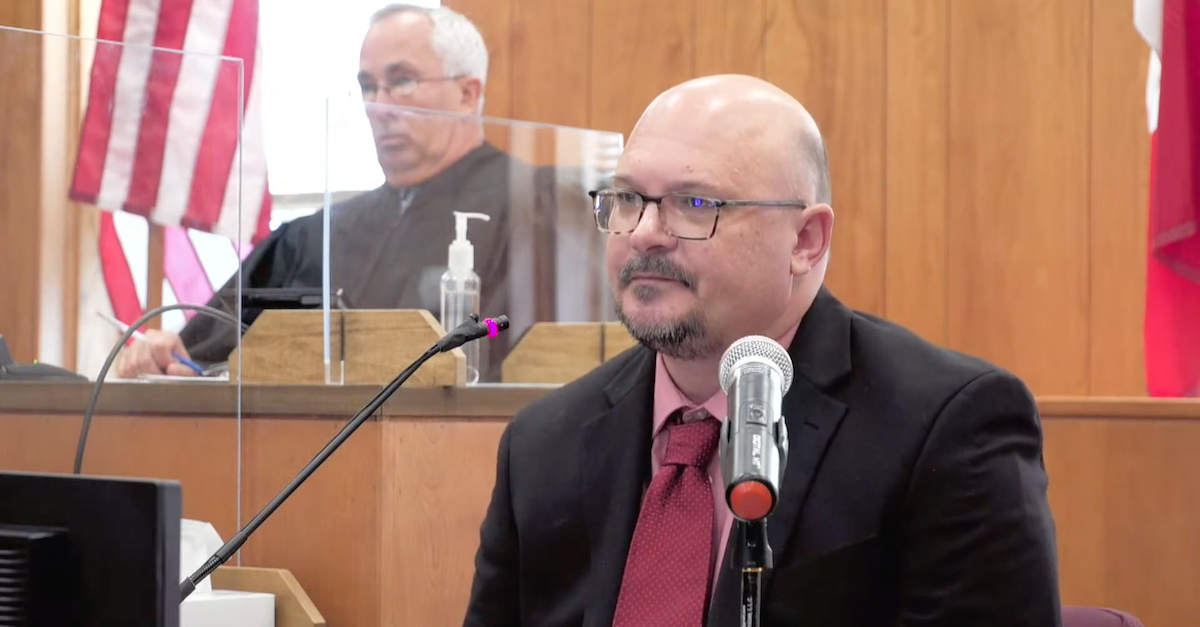
Trent Vileta.
A lengthy spat over whether the authorities properly ran down leads involving possible sex trafficking occurred. Frese suggested that she and her co-counsel were provided adequate information under Brady v. Maryland that sex trafficking was discussed. The documents the defense obtained prior to trial contained only speculation and innuendo about a sex trafficking connection to the case, Vileta and the prosecution maintained.
Still, Frese said that she was “submitting to the court that it was a Brady violation” for the defense not to have received documents from the authorities about an investigation into James Lowe, whom the defense has named as an alleged drug dealer and sex trafficker the defense is trying to connect to the Tibbetts case.
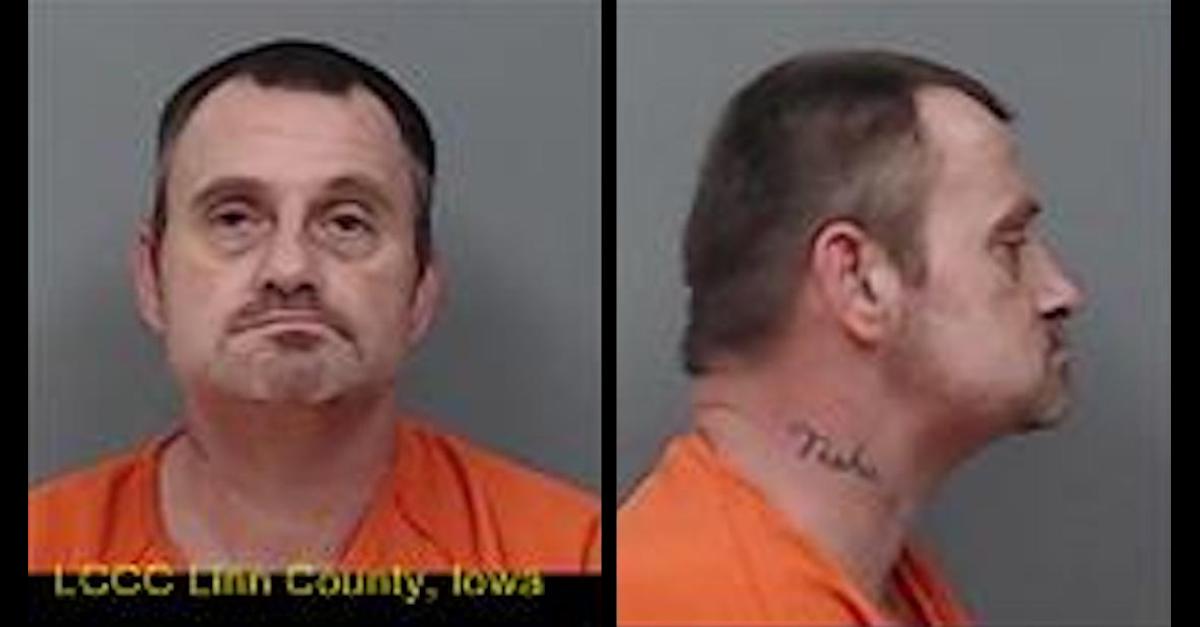
James Lowe. (Image via the Linn County, Iowa Jail.)
Vileta said that various references to sex trafficking in the Tibbetts case file were akin to friends and associates wondering if that is what happened to Tibbetts. One individual said he saw sex trafficking featured on television and wondered if maybe Tibbetts had been victimized. One of Tibbetts’ best friends also said she “wondered” if Mollie was caught by a sex trafficker.
Jennifer Frese noted that the references were mere summaries and suggested that it was possible the officer who took down the reports may have left out critical information.
Vileta pushed back at those suggestions and defended the investigation as thorough. He reiterated that officers were asking open-ended questions — “what do you think could have happened?” — and collected information that he called “speculation” that was ultimately not “credible information.”
“Yes, we got all kinds of speculation: hopes that she wasn’t hurt, hopes she wasn’t kidnapped, hopes she wasn’t sex trafficked, hopes that she didn’t run away,” Vileta continued.
But he said those “hopes” were not concrete information.
“People are being kidnapped for human trafficking and someone may have taken her for that,” another witness apparently told the police. But Vileta said that was a generic statement about the general affairs of the world that he did not consider to be a concrete sense of what was happening in the local community.
He said law enforcement received tips that placed Tibbetts as far away as Colorado. Those tips, he said, turned out to be completely inaccurate given that Tibbetts’ body was found not terribly far from where she disappeared.
Vileta said an investigation into local sex trafficking went nowhere.
“Are you aware that two people came forward and said that they were sex trafficked by James Lowe?” the defense asked.
Prosecutors replied that the tips about Lowe had “zero” connection to Tibbetts and objected to the question; the judge sustained it and shut the defense down.
Frese said the information was directly relevant to the defense case; the judge told her to do a better job of making the link.
Frese then asked about a search warrant involving a sex trafficking case in Indiana which involved Iowa authorities. Vileta said he didn’t know anything about it.
Vileta continued by calling the James Lowe complaint “baseless” and discounted reports by another woman that she was abducted from a convenience store in Brooklyn, Iowa.
Vileta, who was combative to the defense line of questioning throughout the hearing, was forced by Frese after a morning break to explain what a search warrant was. Frese asked if a reported sex trafficking house in New Sharon, Iowa, would have been looked into. He said it was.
“It’d be fair to say from the document that’s in front of you that sex trafficking was mentioned multiple times in the disappearance of Mollie Tibbetts, isn’t that right?” Frese asked.
“Yes, and it looks like some of these you have are psychics, but, yes, it is fair to say it was mentioned a bunch of times,” Vileta said — again rubbishing the defense theory that sex trafficking played a role in Tibbetts’ death.
The judge forced Frese to acknowledge that the law enforcement materials containing references to sex trafficking were turned over by the prosecution to the defense prior to trial.
On cross-examination by the state, Vileta walked through the state’s core narrative at trial: that surveillance video from Brooklyn, Iowa, captured a distant image of what is believed to be Tibbetts jogging and defendant Bahena Rivera’s car circling the area. (Law&Crime previously covered the state’s narrative in detail during the trial.)
“Cristhian Rivera said he did this all by himself, and I’ve never heard those other names before a couple weeks ago,” Vileta said with reference to the defendant’s original confession and the subsequent myrad of names the defense has recently injected into the proceedings.
Prosecutors also asked Vileta to walk through the state of Tibbetts’ body — her legs were apart and her running shorts were off — and said there was a likely sexual element to the killing. Bahena Rivera was never charged with a sex crime, and prosecutors were careful to point that out during the trial.
“Any connection at all through your investigation to Gavin Jones, Dustin Hanson, James Lowe, or anyone else other than Cristhian Rivera?” prosecutor Brown asked Vileta — with a harsh emphasis on “anyone else.”
“No,” Vileta said. “Cristhian Rivera murdered Mollie Tibbetts.”
Frese then asked Vileta about unknown male DNA found in Bahena Rivera’s trunk.
“There were two other samples found” besides the defendant’s, Frese noted — and they didn’t match Bahena Rivera’s DNA.
Frese then pilloried Vileta for failing to test the DNA of other possible suspects. Here’s the exchange:
FRESE: “You could request Gavin Jones’ DNA, is that right?”
VILETA: “Yes, I could, you’re right.”
FRESE: You could also ask for James Lowe’s DNA, is that right?
VILETA: Yes.
FRESE: And you could submit those to the DNA lab to be reviewed, isn’t that correct?
VILETA: Yes.
FRESE: But you haven’t requested Gavin Jones’s DNA, is that right?
VILETA: That’s correct.
FRESE: You haven’t requested James Lowe’s DNA, is that right?
VILETA: That’s correct.
FRESE: In fact, you haven’t requested anyone’s DNA other than my client’s, isn’t that correct?
VILETA: Yes.
Frese asked Vileta about false confessions and about Ron Pexa, an individual the defense zeroed in on during the trial. Pexa was a former Tama reserve officer, Vileta admitted, who lived near the location where Tibbetts’ body was dumped.
Samantha Rix then testified about her connections to James Lowe and the disappearance of Xavior Harrelson. Rix was the person who reported Harrelson missing.She said Harrelson’s mother had dated Lowe and that Lowe frequently spent time with Harrelson. Rix said Lowe was “supplied” with drugs by “big players” when asked if he had cartel connections. Rix also said that at one point, Lowe used her car to commit a crime. She said Lowe was a known drug dealer.
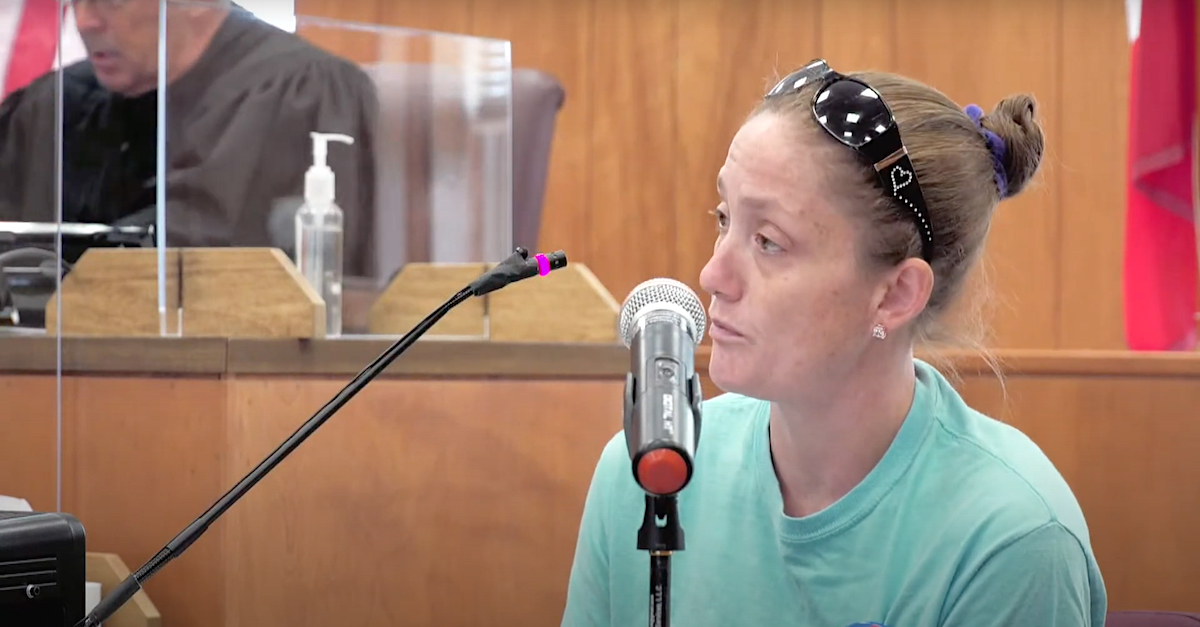
Samantha Rix.
Prosecutors continuously objected to the questions by saying they had nothing to do with Tibbetts. The judge overruled most of them in quick succession.
A narcotics detective testified that a woman who was picked up by a law enforcement officers said she had been sex trafficked through a home on Market Street in New Sharon, Iowa — a home James Lowe appeared to have frequented. The woman described surveillance equipment and other characteristics of the residence which law enforcement checked out and determined to be accurate.
“I went to the residence and observed these things to be true that corroborated those statements she made to be true to law enforcement,” the detective said with reference to whether a search warrant could have been obtained for the property.
The woman claimed she was approached by Lowe at a gas station in Brooklyn, Iowa, the town where Tibbetts had disapepared, and eventually made her way to Lowe’s home. There, she said she accepted drugs and subsequently injected with additional drugs against her will every morning for several months. She believed she was sexually assaulted by unknown men — waking up “feeling foggy, dazed, and sexually violated every morning.”
When asked by the state, the detective said nothing had come of the investigation because the woman was having trouble remembering the details.
Defense Attorney Chad Frese suggested the woman’s account was strong enough for a search warrant application.
Dave Wiebold, an officer with the Iowa County Sheriff’s Office, then testified that he trailed James Lowe one day and ultimately arrested him after Lowe took off from a car on foot — leading to a manhunt of several hours. Lowe was arrested with a glass pipe containing methamphetamine residue, a small bag of a substance believed to be methamphetamine, a pill bottle, and various pills, Wiebold said.
The defense has attempted to connect the house and the people to Tibbetts’ death in an attempt to secure a new trial for Bahena Rivera.
Judge Yates said he would take the arguments under advisement and issue a subsequent ruling.
Before the hearing concluded, Jennifer Frese complained that Yates refused to issue a subpoena duces tecum — that’s a subpoena requiring a witness to produce documents for the hearing. Yates said court rules for post-trial hearings allowed only affidavits and witness testimony.
Gavin Jones and Dalton Hansen both told the Associated Press they had nothing to do with Tibbetts’ death and wanted to clear their names.
Read Law&Crime’s previous coverage of the defense’s post-conviction arguments here, here, and here.
Watch the proceeding below:
Read the latest documents in the case here:
[images via the Law&Crime Network, except as noted]